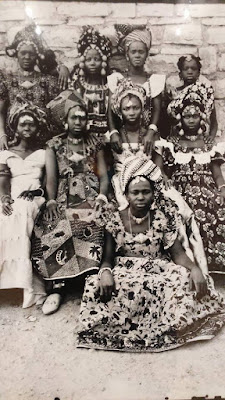escrita olhares perspectivas críticas ensaios artes género feminismos sociologia moda
30.5.16
27.5.16
18.5.16
Amanhã, e depois
Começa amanhã o colóquio internacional «Penetrable / Traversable / Habitable: Exploring Spatial
Environments by Women Artists in the 1960s and 1970s».
O colóquio pretende explorar, numa perspectiva transcultural, a
mobilização do espaço no trabalho de mulheres artistas ao longo das décadas de
1960 e 1970, com um enfoque particular na criação de
ambientes.
As diversas características destas obras, os seus
diferentes modos de funcionar em articulação com um público participante e as
suas várias inscrições estéticas, culturais e políticas, sugerem a necessidade
de pensar colectivamente, e no âmbito de uma história da arte de orientação
feminista, novas categorias exploratórias para a sua
apreensão.
O colóquio contará com a participação, enquanto
keynote speakers, de Catherine de Zegher, Directora do Museu de Belas
Artes de Gante, na Bélgica – curadora da exposição Inside the
Visible: An Elliptical Traverse of Twentieth-Century Art in, of, and from the
Feminine no Institute of Contemporary Art de Boston em 1996 – e de Jenni
Sorkin, Professora Auxiliar de História da Arte Contemporânea na Universidade da
Califórnia-Santa Barbara, autora do livro Live Form: Women, Ceramics and
Community (University of Chicago Press, 2016) e co-curadora da exposição
Revolution in the Making: Abstract Sculpture by Women, 1947 – 2016
apresentada na galeria Hauser Wirth & Schimmel em Los Angeles em
2016.
A discussão vai envolver um conjunto de
historiadoras/es de arte e curadoras/es cujas apresentações irão explorar uma grande
variedade de práticas de mulheres artistas, nas quais o espaço desempenha um
papel determinante.
Uma iniciativa conjunta do Archives of Women Artists, Research and
Exhibitions (AWARE) em Paris e do Instituto de História da Arte da Faculdade de
Ciências Sociais e Humanas da Universidade Nova de Lisboa, em parceria com o
Centro de Arte Moderna da Fundação Calouste Gulbenkian, o colóquio é presidido por Camille Morineau, anteriormente
curadora das colecções contemporâneas no Museu de Arte Moderna/Centro Pompidou em
Paris.
AWARE é uma organização sem fins lucrativos cuja missão é reintegrar as
mulheres artistas do século XX na História da Arte.
16.5.16
Poema (II)
Como é possível perder-te
sem nunca te ter achado
nem na polpa dos meus
dedos
se ter formado o afago
Sem termos sido a cidade
nem termos rasgado pedras
sem descobrirmos a cor
nem o interior da erva
Como é possível perder-te
sem nunca te ter achado
minha raiva
de ternura
meu ódio de conhecer-te
minha alegria profunda
sem nunca te ter achado
nem na polpa dos meus
dedos
se ter formado o afago
Sem termos sido a cidade
nem termos rasgado pedras
sem descobrirmos a cor
nem o interior da erva
Como é possível perder-te
sem nunca te ter achado
minha raiva
de ternura
meu ódio de conhecer-te
minha alegria profunda
POEMA SOBRE A RECUSA
in "Minha Senhora de Mim", Maria Teresa Horta
13.5.16
Poema
Morrer de amor
ao pé da tua boca
Desfalecer
à pele
do sorriso
Sufocar
de prazer
com o teu corpo
Trocar tudo por ti
se for preciso.
Maria Teresa Horta, «Morrer de amor», Destino
11.5.16
7.5.16
3.5.16
2.5.16
arte & ciência (social)
Guy Bourdin
(Exposição em Paris)
Foto: gigi
Managing hypersexuality in British engineering: conceptualising women’s micro adjustments and exploring their career consequences
(Exposição em Paris)
Foto: gigi
Managing hypersexuality in British engineering: conceptualising women’s micro adjustments and exploring their career consequences
Wednesday 4th May 2016
2.00-3.30 pm, 2.214, Warwick Business School, UK
Dulini Fernando, IRRU and OHRM, Warwick Business School
Social theorists have argued that the body, in religion, law and medicine, is a sexualised body and an erotic site constructed and shaped through language and meanings (Cregan, 2006: 61). The ‘normal’ organizational body, however, possesses neither sexuality nor a gender (Acker, 2003). Although apparently gender-less, researchers maintain that this body is implicitly masculine (Collinson and Hearn, 1996; McDowell, 1997). It is thus the female body alone that is seen as introducing the burden of gender and sexuality into the workplace. From a career point of view, excessive sexuality associated with female bodies (see Barker and Duschinsky, 2012; Watts, 2010), is deeply problematic because it conflicts with notions of technical competence (Gutek, 2013; Gallos, 1989) and makes it difficult for female workers to build relationships with colleagues – both of which are crucial to career building (King, 2004a).
Research has shown how female bodies are associated with inappropriate sexuality, danger, volatility and disruption to the normal operation of the organisation (Acker, 1990; Kenny and Bell, 2011; Sheppard, 1989). However we have limited understanding of how women manage such hypersexualisation (Barker and Duschinsky, 2012) or of its implications for careers. Reporting on a study of the career experiences of women engineers in the UK, this paper addresses these limitations. Our study is based on petroleum, mechanical and automotive engineering. These are interesting sectors in which to examine women’s career experiences because they continue to be significantly male dominated and highly masculine, in contrast to more feminised branches of engineering such as civil and chemical engineering (Engineering UK, 2014). Our findings highlight a variety of micro political adjustments women make which coalesce into three broad approaches. We discuss the career implications of each, and highlight their potential for both change and continuity in the prevailing gender order. We draw on our findings to develop a theory of ‘respectable femininity’. We argue that respectable femininity is the dominant form of hegemonic femininity in contemporary male dominated work settings, and that this maintains the prevailing gender order through women engaging in self-regulation and intra-gender policing that significantly compromises career building activity. We provide insights into an implicit but powerful ideological barrier which potentially constrains women’s career progression. We highlight the implications of our findings for those charged with managing women’s careers in engineering and more widely.
Subscrever:
Mensagens (Atom)





